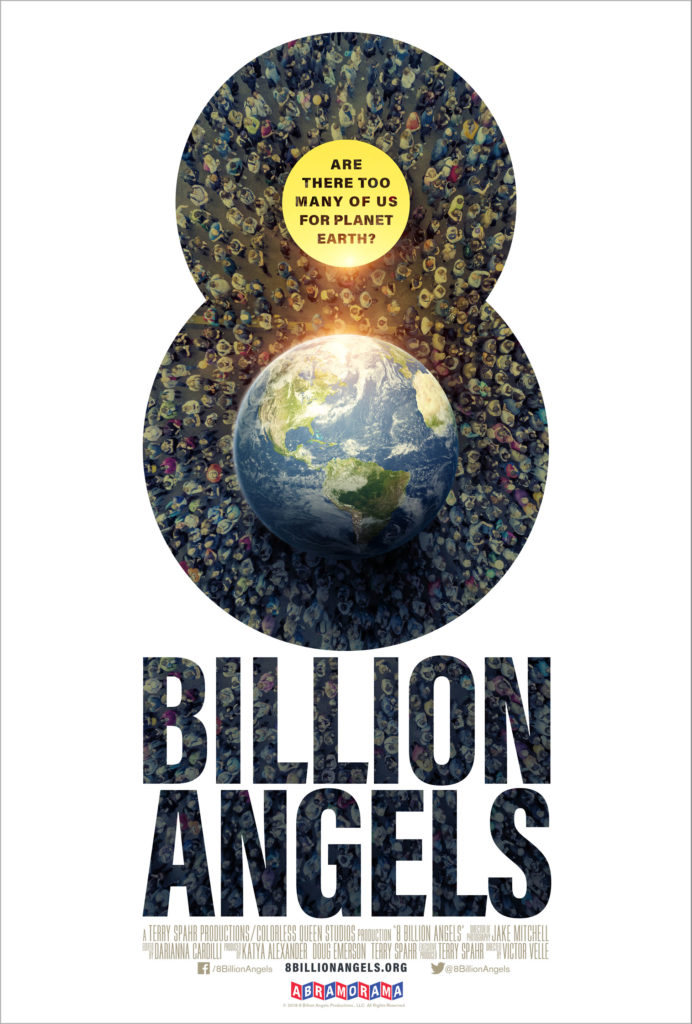Some people learn well by hearing and others find that seeing works better. Perhaps the best way of learning uses both–video–and there’s a great new film on population.
I am aware of several videos that have been made to inform people about overpopulation. “Mother Caring for 7 Billion” was the first to have been conceived right here in Durango, and it is excellent. Durango’s second population film, “Ancient People in Overshoot and Collapse in the Four Corners”, is still gestating. More about “Overshoot” later.
Also made in Colorado, “Growthbusters” looks at the bad side of growth with a bit of humor. “Critical Mass” features the rodent experiments by John Calhoun, which demonstrated that rat and mouse societies deteriorated when they were overpopulated. I was intrigued when I read Calhoun’s Scientific American article in 1962.
“Don’t Panic” by the sword-swallowing Hans Rosling takes a different viewpoint, that there’s no problem with population. He is wonderful showman and has some good points in this video. However, he only looks at the effects of increasing population on humans. He disregards our effect on other species–and on Earth, itself. You’ll need to go to another of his videos to see him actually swallowing a sword.
One of my favorite nonprofit organizations, the Population Media Center, demonstrates how effective the media can be. They use soap opera-like programs to deliver messages to people in developing countries with surprisingly good results. The folks get hooked on a serial drama and tune in regularly, absorbing subtle messages about empowerment of women, prevention of disease and choosing to have small families.
The latest film is “8 Billion Angels”. Whereas many documentaries feature experts speaking about the subject at hand, Angels starts with stories told by farmers in the fields, by an oyster cultivator and by an environmental activist in India. These everyday people tell stories showing we are experiencing the effects of climate chaos and overpopulation already.
“Angels” seeks balance. It doesn’t lay the blame for our environmental crises only on increasing population. It also incriminates our consumption. “Angels” also points out that people are unlikely to decrease their affluence in our world of omnipresent media pushing consumption.
In addition to everyday people, several experts present their answers to environmental problems in the “Solutions” section of this film. Zoe Weil, an educator, espouses human rights and environmental preservation. Travis Rieder, a philosophy professor who spoke in Durango a couple of years ago, praises the ethics of small family size. Bill Ryerson, founder of the Population Media Center, mentions the success of a radio program in rural Ethiopia in lowering birth rates. They stress the importance of changing the norm from assuming that all women will bear children to giving birth being one of several options.
They suggest several solutions in addition to changing the norm, including: healthcare for all, with access to effective contraception; education of girls and women; and espousing policies to slow population growth and support family planning.
Terry Spahr, a retired businessperson, is the energy behind “Angelsâ€. He wrote this about why “Angels” is so important: “We have an instinctive aversion to discussing unsustainable population growth because it can be fraught with emotions across the cultural, political, religious and economic spectrums. But it is a conversation we must have to ensure the future of humanity.”
For more information about “Angels” and to watch the trailer go to: https://8billionangels.org. There are links on the website to stream it, either through a local theater (if you live in the USA) or one which will work in most countries. There is also a stimulating panel discussion of the film here: https://vimeo.com/536090003/027c36e3e0
After writing Population Matters! essays for 2 decades I realized that the written word doesn’t reach everyone. Negative connotations with the word “population” is one concern, and not everyone likes to read. Art is another means to reach people, so I entered several pieces of “contraceptual art” (as opposed to “conceptual art”) in competitions. Recently I ran into Durango filmmaker, Larry Ruiz, who makes prizewinning archeological videos. Why not join forces to make a film on the reason Ancestral Puebloans left the Four Corners? One theory is their population increased to the point that drought caused them to overshoot the carrying capacity of the land. Thus, the movie “Overshoot” coming soon! Here’s a short introduction to one of the film’s messages: https://vimeo.com/554063877 .
© Richard Grossman MD
